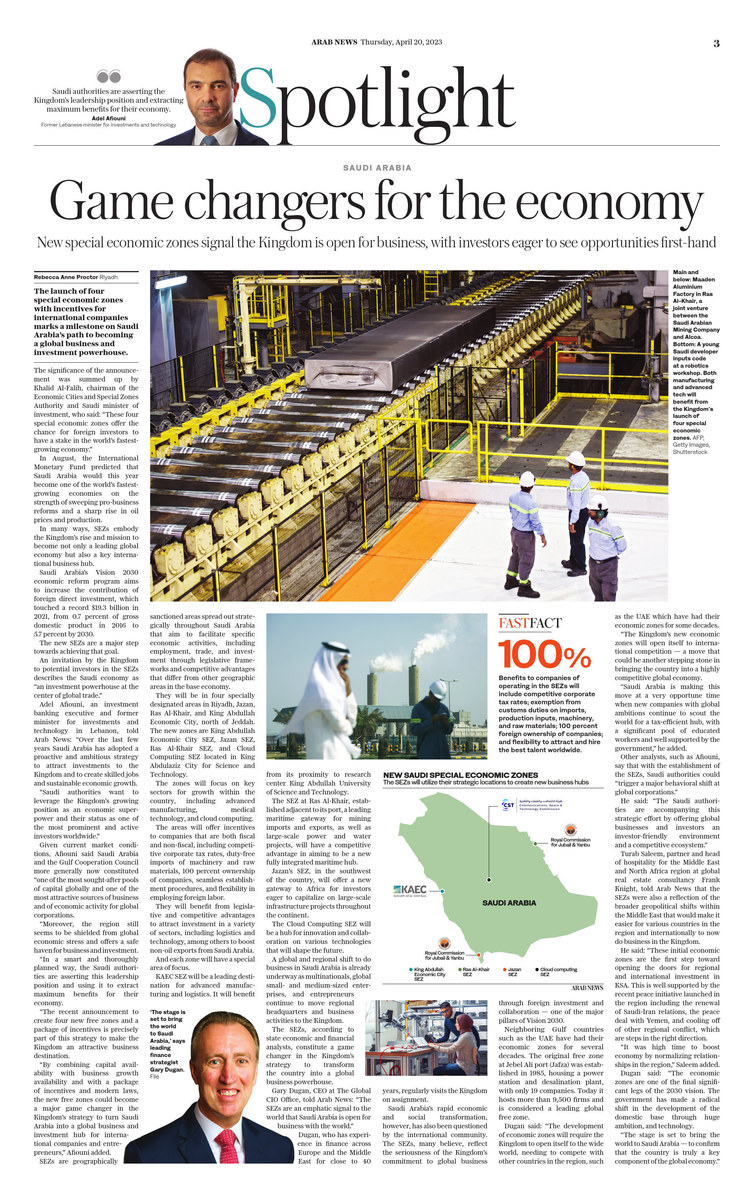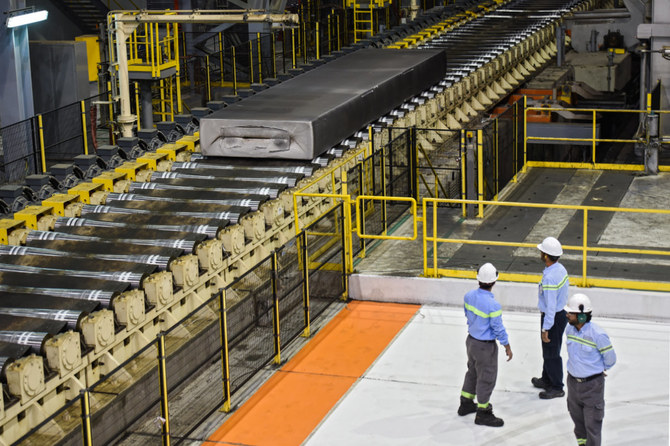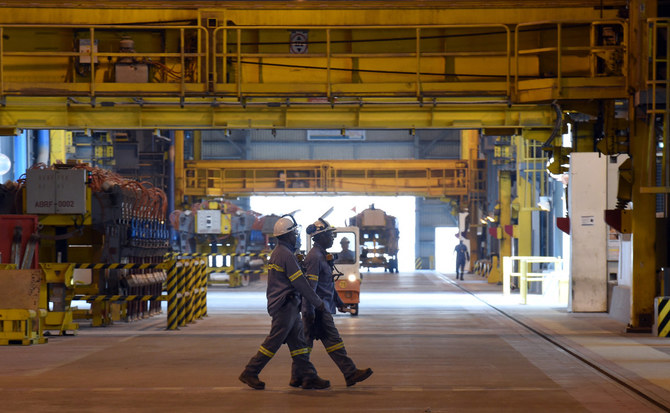RIYADH: The launch of four special economic zones with incentives for international companies marks a milestone on Saudi Arabia’s path to becoming a global business and investment powerhouse.
The significance of the announcement was summed up by Khalid Al-Falih, chairman of the Economic Cities and Special Zones Authority and Saudi minister of investment, who said: “These four special economic zones offer the chance for foreign investors tohave a stake in the world’s fastest growing economy.”
In August, the International Monetary Fund predicted that Saudi Arabia would this year become one of the world’s fastest growing economies on the strength of sweeping pro-business reforms and a sharp rise in oil prices and production.
In many ways, SEZs embody the Kingdom’s rise and mission to become not only a leading global economy but also a key international business hub.
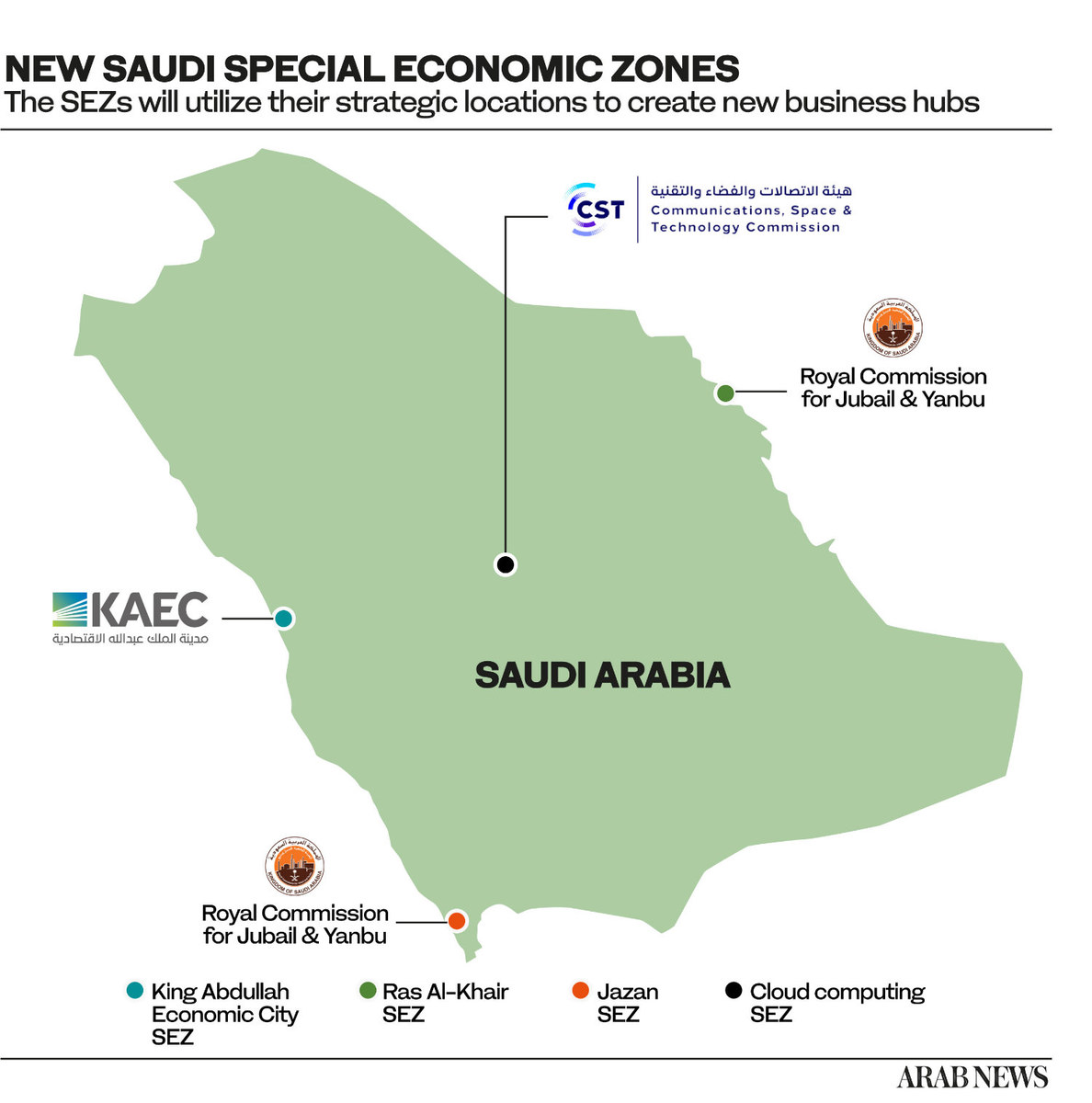
Saudi Arabia’s Vision 2030 economic reform program aims to increase the contribution of foreign direct investment, which touched a record $19.3 billion in 2021, from 0.7 percent of gross domestic product in 2016 to 5.7 percent by 2030.
The new SEZs are a major step toward achieving that goal. An invitation by the Kingdom to potential investors in the SEZs describes the Saudi economy as “an investment powerhouse at the center of global trade.”
FASTFACT
The benefits to companies of operating in the SEZs will include competitive corporate tax rates; exemption from customs duties on imports, production inputs, machinery, and raw materials; 100 percent foreign ownership of companies; and flexibility to attract and hire the best talent worldwide.
Adel Afiouni, an investment banking executive and former minister for investments and technology in Lebanon, told Arab News: “Over the last few years Saudi Arabia has adopted a proactive and ambitious strategy to attract investments to the Kingdom and to create skilled jobs and sustainable economic growth.
“Saudi authorities want to leverage the Kingdom’s growing position as an economic superpower and their status as one of the most prominent and active investors worldwide.”
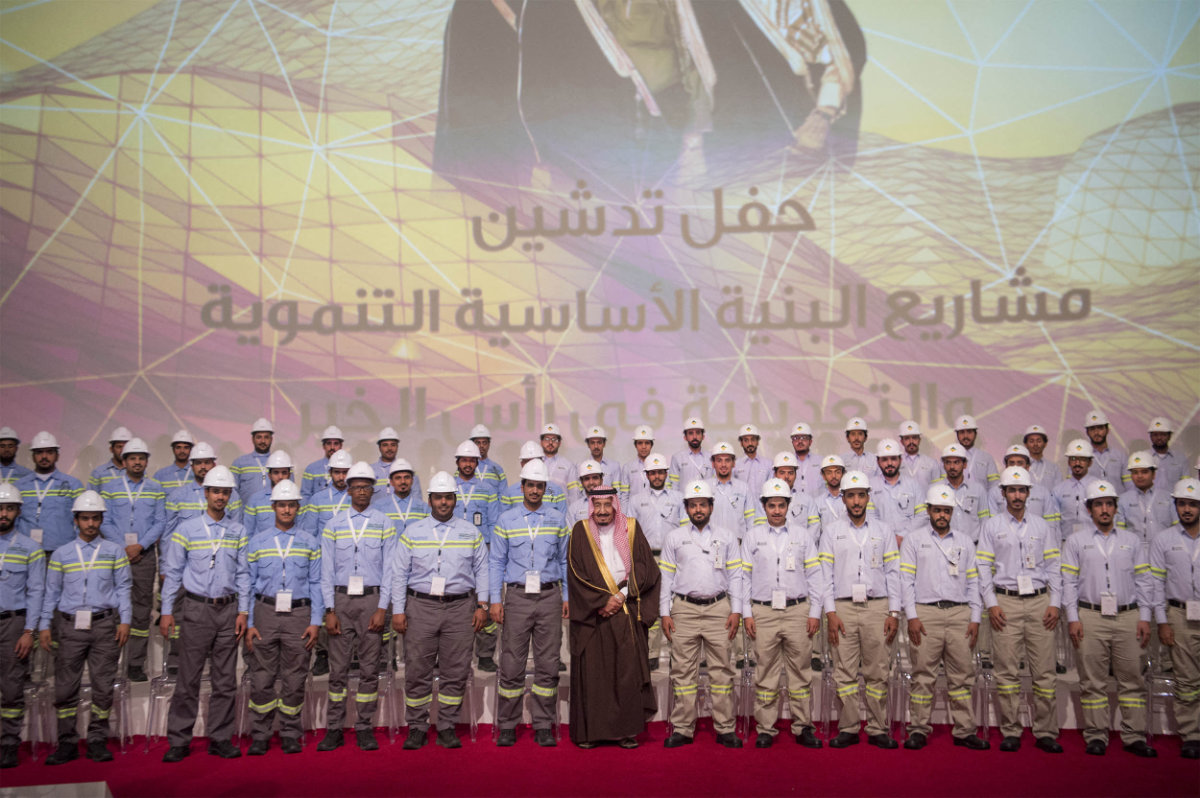
Saudi King Salman meeting with employees of the Maaden Aluminium Factory in Ras Al-Khair Industrial area on November 29, 2016. Ras Al Khair is one of the four recently designated special economic zones of Saudi Arabia. (Saudi Royal Palace handout photo via AFP/File)
Given current market conditions, Afiouni said Saudi Arabia and the Gulf Cooperation Council more generally now constituted “one of the most sought-after pools of capital globally and one of the most attractive sources of business and of economic activity for global corporations.
“Moreover, the region still seems to be shielded from global economic stress and offers a safe haven for business and investment.
“In a smart and thoroughly planned way, the Saudi authorities are asserting this leadership position and using it to extract maximum benefits for their economy.
“The recent announcement to create four new free zones and a package of incentives is precisely part of this strategy to make the Kingdom an attractive business destination.
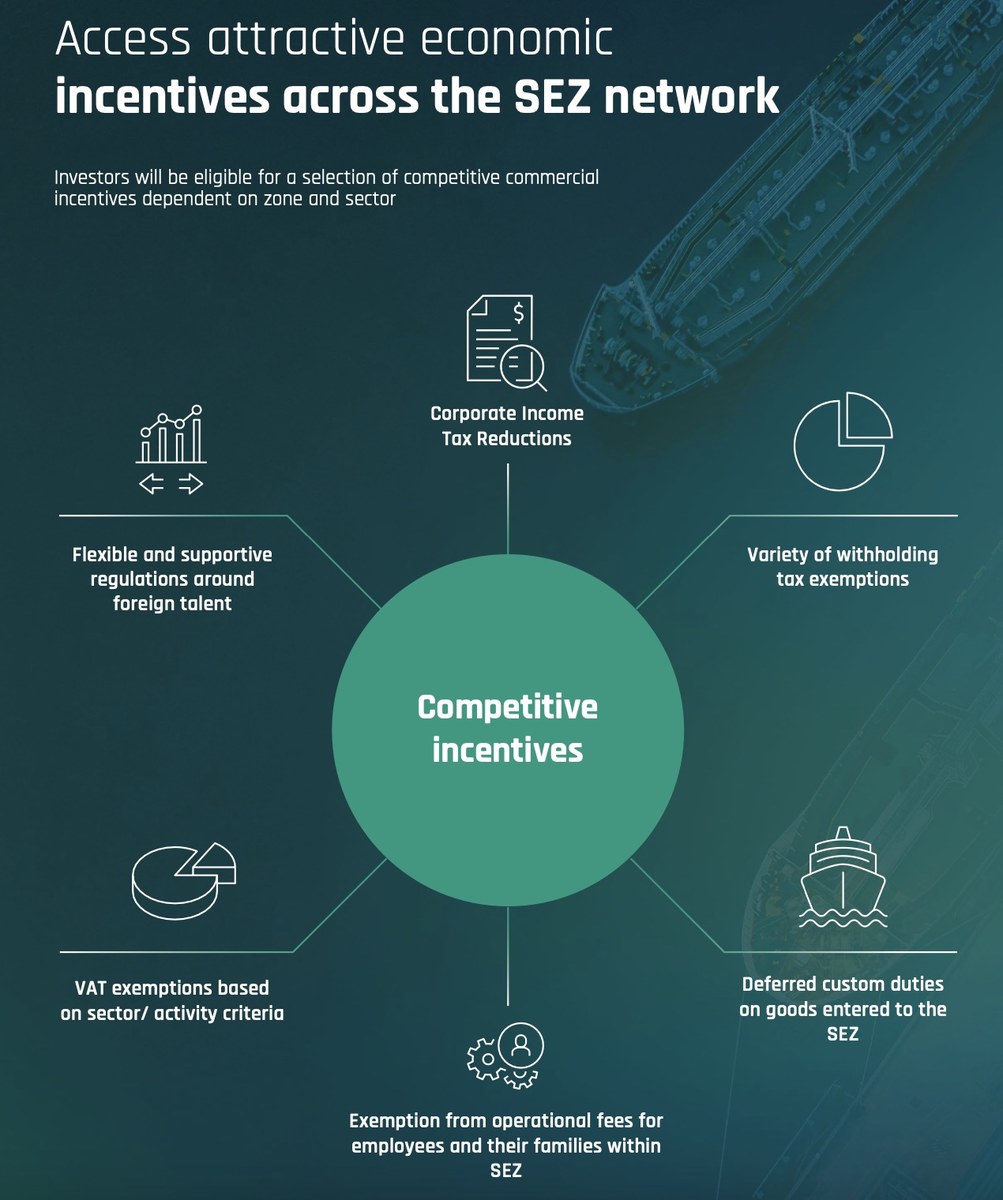
Infographic courtesy of Saudi Arabia's Economic Cities and Special Zones Authority
“By combining capital availability with business growth availability and with a package of incentives and modern laws, the new free zones could become a major game changer in the Kingdom’s strategy to turn Saudi Arabia into a global business and investment hub for international companies and entrepreneurs,” Afiouni added.
SEZs are geographically sanctioned areas spread out strategically throughout Saudi Arabia that aim to facilitate specific economic activities, including employment, trade, and investment through legislative frameworks and competitive advantages that differ from other geographic areas in the base economy.
They will be in four specially designated areas in Riyadh, Jazan, Ras Al-Khair, and King Abdullah Economic City, north of Jeddah. The new zones are King Abdullah Economic City SEZ, Jazan SEZ, Ras Al-Khair SEZ, and Cloud Computing SEZ located in King Abdulaziz City for Science and Technology.

A young Saudi developer inputs code at a robotics workshop. Both manufacturing and advanced tech will
benefit from the Kingdom’s launch of four special economic zones. (Shutterstock)
The zones will focus on key sectors for growth within the country, including advanced manufacturing, medical technology, and cloud computing.
The areas will offer incentives to companies that are both fiscal and non-fiscal, including competitive corporate tax rates, duty-free imports of machinery and raw materials, 100 percent ownership of companies, seamless establishment procedures, and flexibility in employing foreign labor.
They will benefit from legislative and competitive advantages to attract investment in a variety of sectors, including logistics and technology, among others to boost non-oil exports from Saudi Arabia.
And each zone will have a special area of focus.
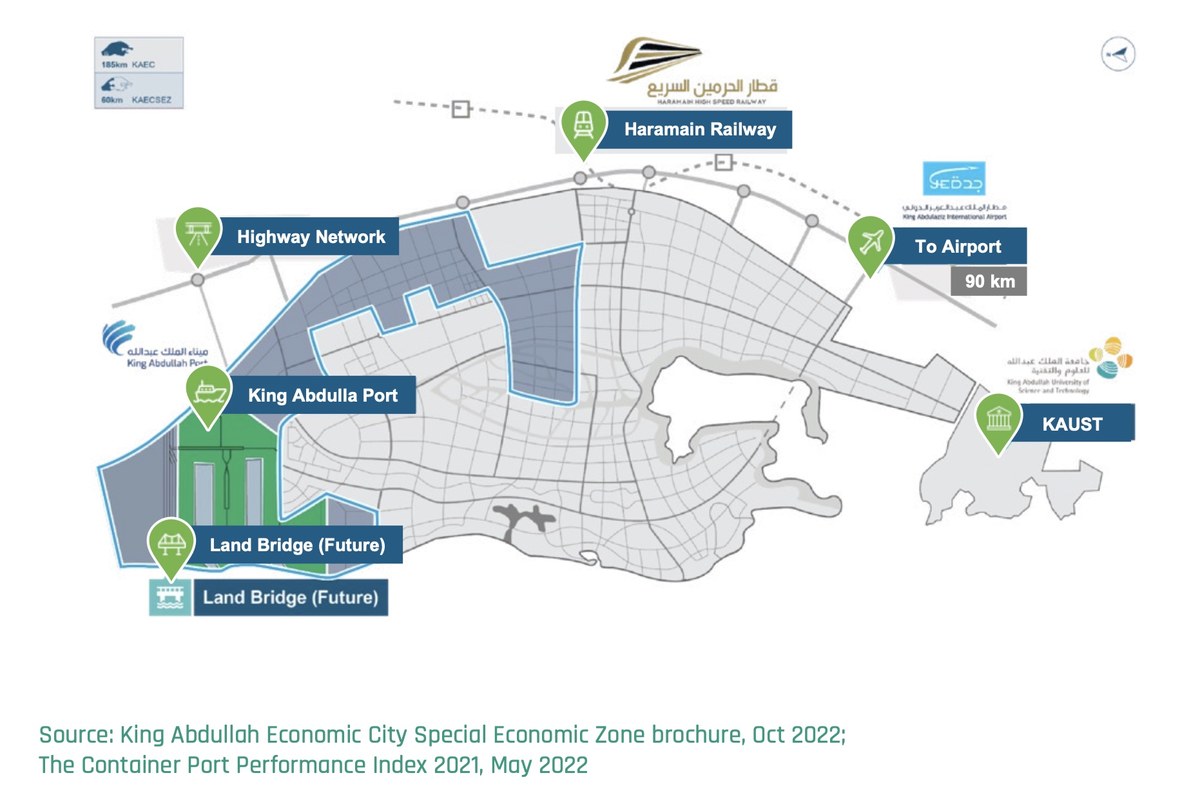
Infographic from Saudi Arabia's Economic Cities and Special Zones Authority brochure, 2023.
KAEC SEZ will be a leading destination for advanced manufacturing and logistics. It will benefit from its proximity to research center King Abdullah University of Science and Technology, which offers access to cutting-edge research and development facilities that support the development of medical technology, and automated- and electric-vehicle technology clusters.
The SEZ at Ras Al-Khair, established adjacent to its port, a leading maritime gateway for mining imports and exports, as well as large-scale power and water projects, will have a competitive advantage in aiming to be a new fully integrated maritime hub, bolstered by an existing community of sector leaders including the IMI (Innovative Medicines Initiative), Hyundai Heavy Industries, and Lamprell.
Jazan’s SEZ, in the southwest of the country, will offer a new gateway to Africa for investors eager to capitalize on large-scale infrastructure projects throughout the continent via one of the biggest ports for exports in the region.
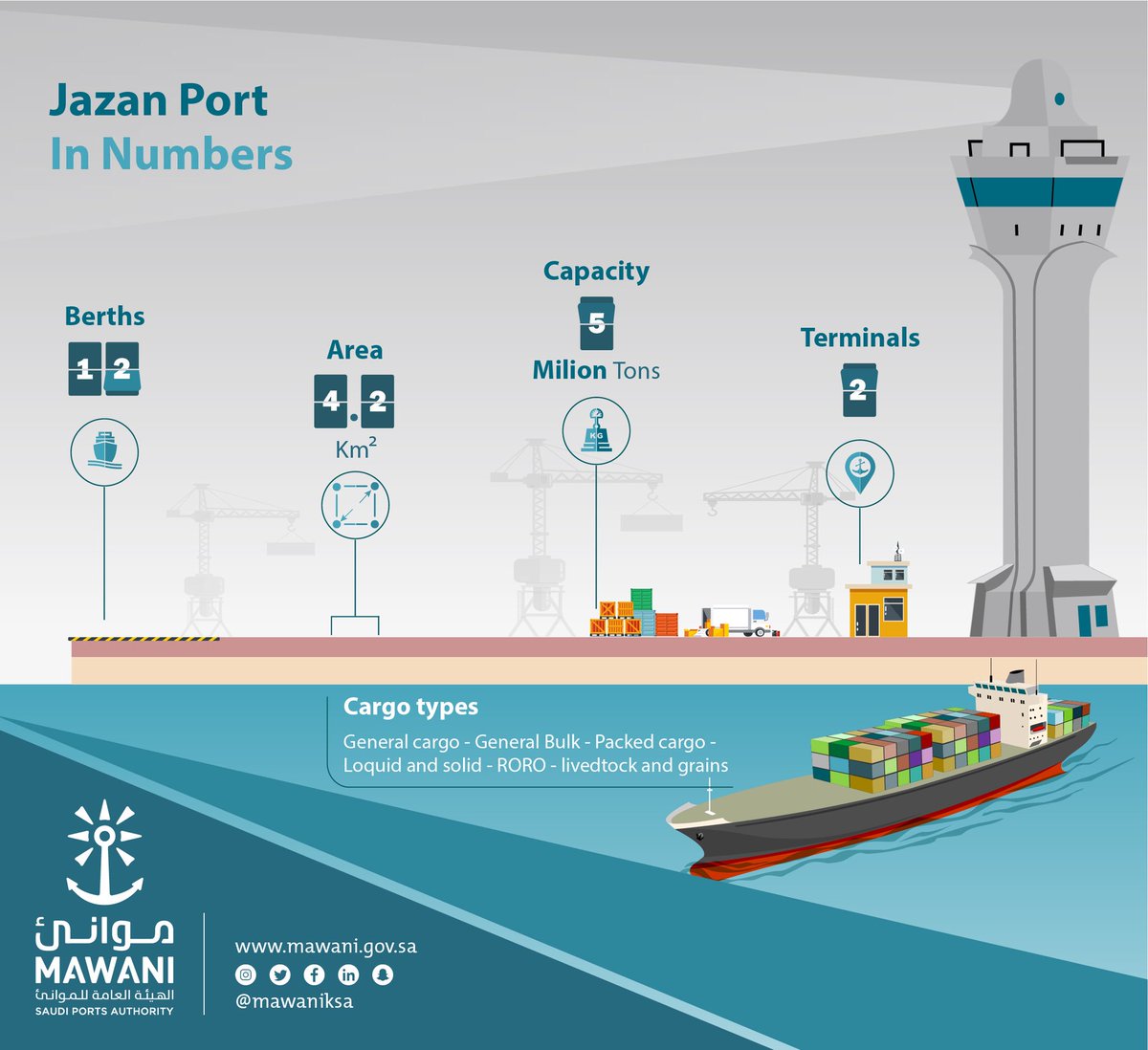
Infographic courtesy of Saudi Arabia's Saudi Ports Authority via Twitter
And the Cloud Computing SEZ will be a hub for innovation and collaboration on various technologies that will shape the future, also capitalizing on the Kingdom’s competitive electricity and data costs.
A global and regional shift to do business in Saudi Arabia is already underway as multinationals, global small- and medium-sized enterprises, and entrepreneurs continue to move regional headquarters and business activities to the Kingdom.
The SEZs, according to state economic and financial analysts, constitute a game changer in the Kingdom’s strategy to transform the country into a global business powerhouse.
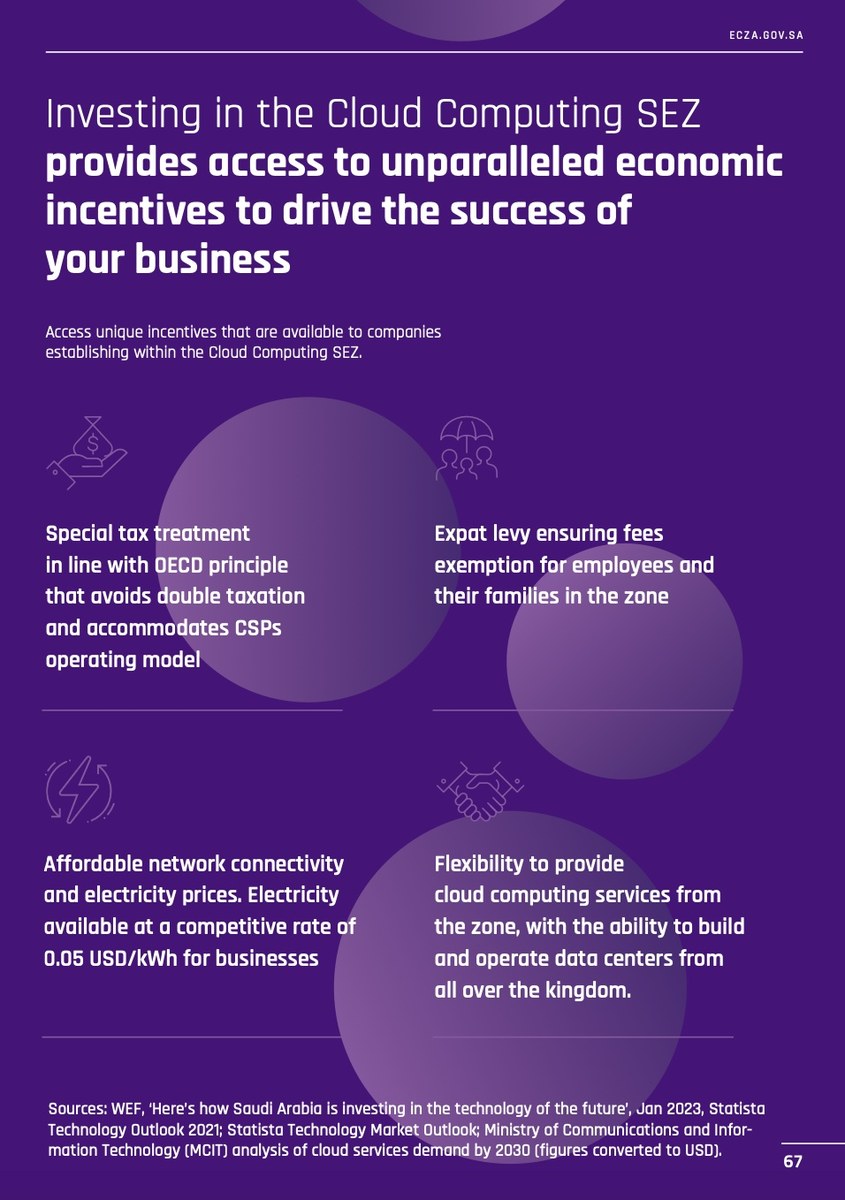
Infographic from Saudi Arabia's Economic Cities and Special Zones Authority brochure, 2023.
Gary Dugan, CEO at The Global CIO Office, told Arab News: “The SEZs are an emphatic signal to the world that Saudi Arabia is open for business with the world.”
Dugan, who has experience in finance across Europe and the Middle East for close to 40 years, regularly visits the Kingdom on assignment.
Saudi Arabia’s rapid economic and social transformation, however, has also been questioned by the international community. The SEZs, many believe, reflect the seriousness of the Kingdom’s commitment to global business through foreign investment and collaboration — one of the major pillars of Vision 2030.
Neighboring Gulf countries such as the UAE have had their economic zones for several decades. The original free zone at Jebel Ali port (Jafza) was established in 1985, housing a power station and desalination plant, with only 19 companies. Today it hosts more than 9,500 firms and is considered a leading global free zone.
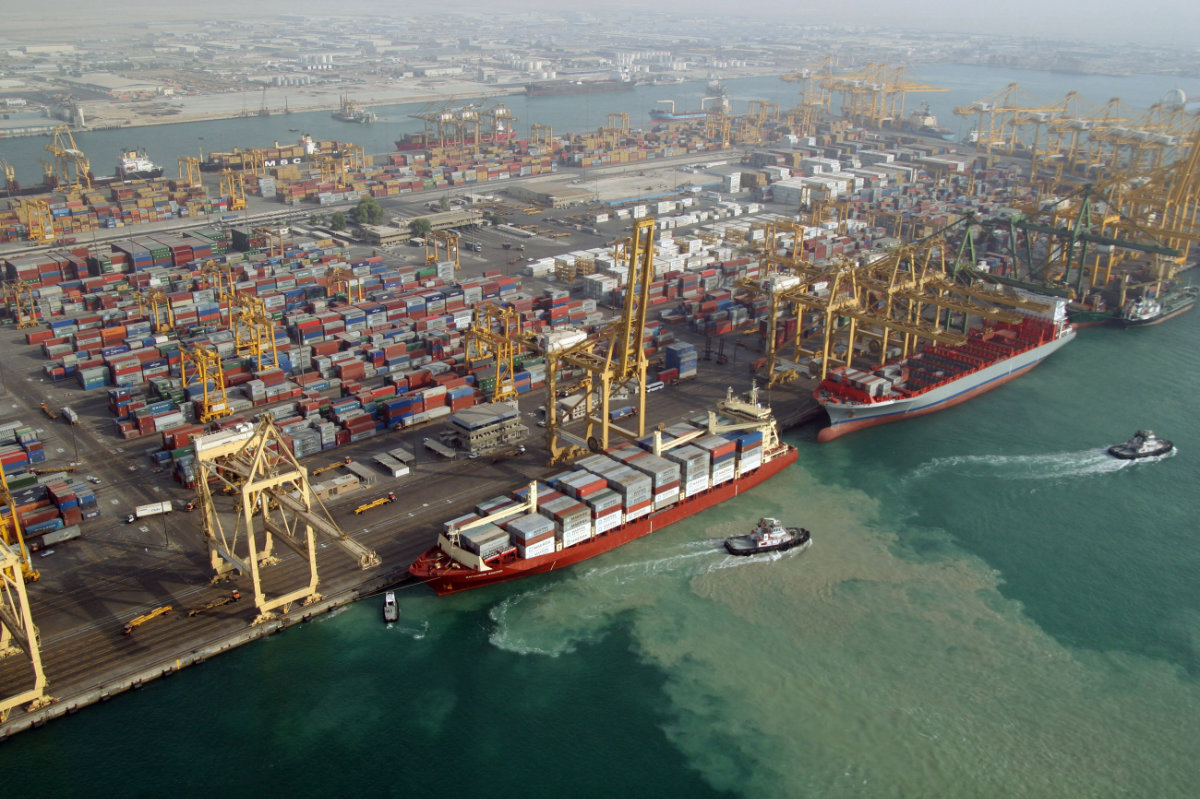
This photo taken on February 10, 2022, shows Dubai's Jebel Ali, the world's largest manmade port. Hosting only 19 companies when it opened in 1985, Jebel Ali today hosts more than 9,500 firms and is considered a leading and model global free zone. (AFP file)
Dugan said: “The development of economic zones will require the Kingdom to open itself to the wide world, needing to compete with other countries in the region, such as the UAE which have had their economic zones for some decades.
“The Kingdom’s new economic zones will open itself to international competition — a move that could be another steppingstone in bringing the country into a highly competitive global economy.
“Saudi Arabia is making this move at a very opportune time when new companies with global ambitions continue to scout the world for a tax-efficient hub, with a significant pool of educated workers and well supported by the government,” he added.
Other analysts, such as Afiouni, say that with the establishment of the SEZs, Saudi authorities could “trigger a major behavioral shift at global corporations.”
He said: “The Saudi authorities are accompanying this strategic effort by offering global businesses and investors an investor-friendly environment and a competitive ecosystem.”
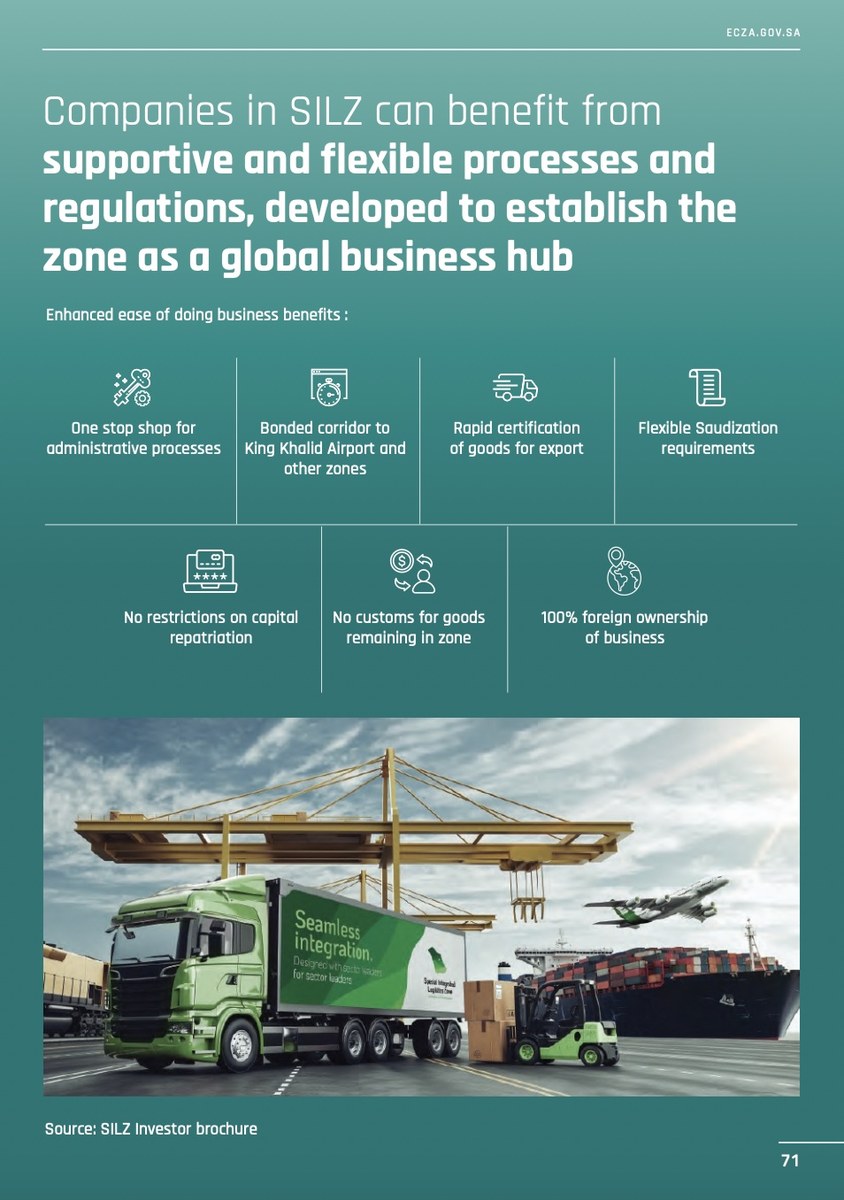
Infographic from Saudi Arabia's Economic Cities and Special Zones Authority brochure, 2023.
Turab Saleem, partner and head of hospitality for the Middle East and North Africa region at global real estate consultancy Frank Knight, told Arab News that the SEZs were also a reflection of the broader geopolitical shifts within the Middle East that would make it easier for various countries in the region and internationally to now do business in the Kingdom.
“These initial economic zones are the first step toward opening the doors for regional and international investment in KSA. This is well supported by the recent peace initiatives launched in the region, including the renewal of Saudi-Iran relations, the peace deal with Yemen, and cooling off of other regional conflict, which are steps in the right direction,” Saleem said.
“It was high time to boost economy by normalizing relationships in the region.”
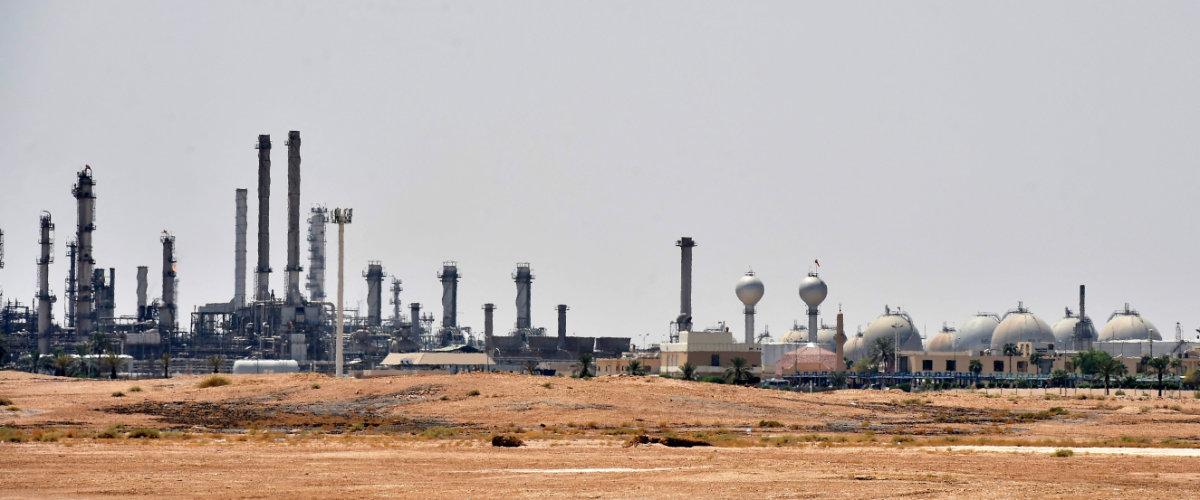
Under Saudi Arabia's Vision 2030, the Kingdom has been moving toward a diversified economy, reducing its dependence on oil and developing public service sectors such as health, education, infrastructure, recreation, and tourism. (AFP)
Ultimately, the SEZs are a crucial component of Crown Prince Mohammed bin Salman’s economic vision for the country — a way to move away from a solely oil-based economy to set up a parallel economy that heralds in a new era for Saudi Arabia as a rising international hub for business, innovation, and entrepreneurship.
Dugan said: “The economic zones are one of the final significant legs of the 2030 vision. The government has made a radical shift in the development of the domestic base through huge ambition, and technology.
“The stage is to bring the world to Saudi Arabia — to confirm that the country is truly a key component of the global economy.”
